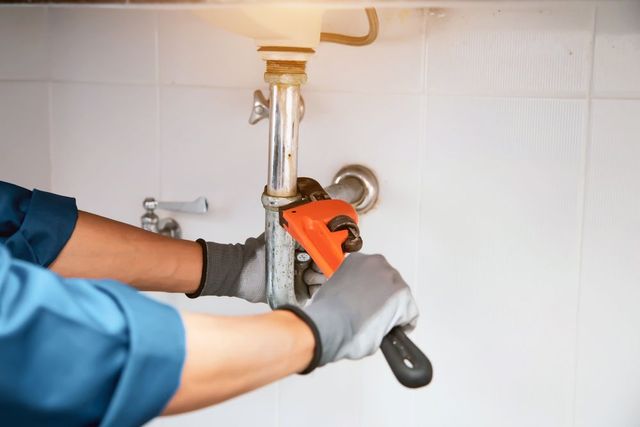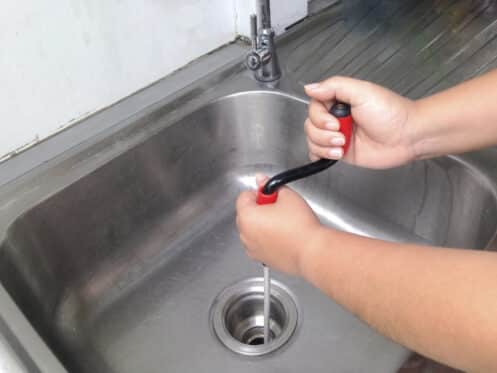New Homeowner's Guide to Bathroom Plumbing: Essential Advice
New Homeowner's Guide to Bathroom Plumbing: Essential Advice
Blog Article
In this article below you can discover more sound information with regards to 6 Essential Plumbing Checks for New Homeowners.

For brand-new home owners, understanding and maintaining shower room plumbing can save both money and time by avoiding expensive issues down the line. Right here are some necessary washroom pipes ideas to help you keep everything running smoothly.
Acquaint Yourself with the Main Shut-Off Shutoff
Recognizing where the primary water shut-off shutoff lies in your home is critical. This allows you to quickly shut off the water system in case of major leaks or during pipes emergency situations, stopping substantial water damage.
On A Regular Basis Check for Leaks
Little leaks can lead to big troubles. On a regular basis inspect under sinks, around bathrooms, and near pipes fixtures for any indicators of leaks. Search for moisture, little drips, or rust. Capturing and fixing leakages early can avoid a lot more major damage and save water.
Don't Disregard Slow Drains
If your sink or bathtub is draining gradually, it's frequently an indication of a blockage creating. Resolving this very early can avoid a full blockage. Use a bettor or a plumbing professional's snake to clean out debris. Prevent utilizing chemical drainpipe cleaners as they can damage your pipes with time.
Know What Not to Flush
Commodes are not waste disposal unit. Prevent flushing anything apart from toilet paper and human waste. Things like wipes, womanly hygiene items, and cotton swabs should be gotten rid of in the garbage to avoid clogs and sewage system backups.
Set Up Strainers in Drains
Area filters in your sink and tub drains to catch hair and other debris prior to they enter your pipes system. Cleaning up the strainers regularly will assist protect against build-up and keep water flowing freely.
Keep Your Water Heater
Ensure your hot water heater is readied to a proper temperature (commonly around 120 degrees Fahrenheit) to avoid hot and minimize power usage. Flush the container every year to get rid of debris accumulation, which can lower the effectiveness and life-span of your heating unit.
Upgrade Your Components
If your home has older fixtures, think about updating to extra efficient designs. Modern toilets, showerheads, and taps are designed to utilize much less water while supplying excellent pressure, which can substantially lower your water costs and environmental footprint.
Be Cautious with DIY Pipes Repairs
While it's appealing to take care of all home repairs on your own, be cautious with pipes. Some issues could require expert knowledge, particularly if they include primary water lines or sewage system repairs. Hiring a professional can in some cases be a lot more economical than do it yourself, especially if it prevents additional damages.
Get Ready For Cold Weather
Shield your pipes from freezing during cold weather by protecting pipes in unheated areas like cellars, attic rooms, and garages. Throughout severe chilly, allow cold water drip from faucets served by subjected pipes to help avoid freezing.
Schedule Regular Upkeep
Take into consideration scheduling annual inspections with a licensed plumber. They can spot issues that you could miss out on, such as surprise leakages or damage on pipelines and fixtures. Regular maintenance aids expand the life of your pipes system and can stop emergencies.
Conclusion
Understanding and keeping your home's shower room plumbing can stop numerous common concerns. By complying with these vital suggestions, you can ensure your restroom continues to be useful and efficient, conserving you money and time over time.
5 Plumbing Tips for First-Time Homeowners
Know How to Shut Off the Water
In most homes, the water can be shut off at two places: at the appliance or fixture itself, and for the whole house. For instance, look under your sink or behind the toilet. See those little knobs that connect with the pipes? Those are the shut off valves for those fixtures. Simply turn them until the water is off. The main shut off valve (which controls water throughout your entire home) will be outside, where the water feeds into the structure. You might need a dedicated tool, such as a water shut-off key, to shut off the water at the main.
Build an Emergency Plumbing Kit
Everyone knows how important it is to have a high-quality plunger around the house. But there are other things that can help you out when issues arise with the pipes. Building an emergency plumbing kit to solve issues on your own is part of any list of basic plumbing tips. Consider adding these things to create a basic plumbing kit:
Adjustable wrench Tongue-and-groove pliers Screwdrivers Plumber’s tape Pipe sealant Duct tape Set of hex keys Clip light for working under cabinets Auger and hand snake Do a Little Research
Many small leaks can be handled by replacing a small part of the piping system, tightening part of a faucet, or even changing out an aerator. Take the time to browse how-to articles for common plumbing problems, such as a running toilet or slow-draining sink. You might be surprised to find how easy it can be to do simple things yourself, like replace a valve in the back of the toilet.
Keep it Simple With No Chemicals
If you have a clog, you might be tempted by the promises of liquid drain cleaner. While this might work at first, it actually causes more damage deep in the pipes, eventually creating even more problems down the road.
Instead, try using baking soda and vinegar to create a strong fizzing effect that can help break up clogs and clear gunk from drains. Follow it with boiling water to clean the pipes even more thoroughly.
Take Care of Your Garbage Disposal
Be cautious about what you put down the disposal. Avoid pouring in fats, oils, and grease, as these are a surefire way to get a clog. Beware of certain foods too, such as celery or bones, as they can lodge in the works. Always run the disposal with water flowing.
https://modernize.com/homeowner-resources/other/10-plumbing-tips-for-first-time-homeowners

Further Details Report this page